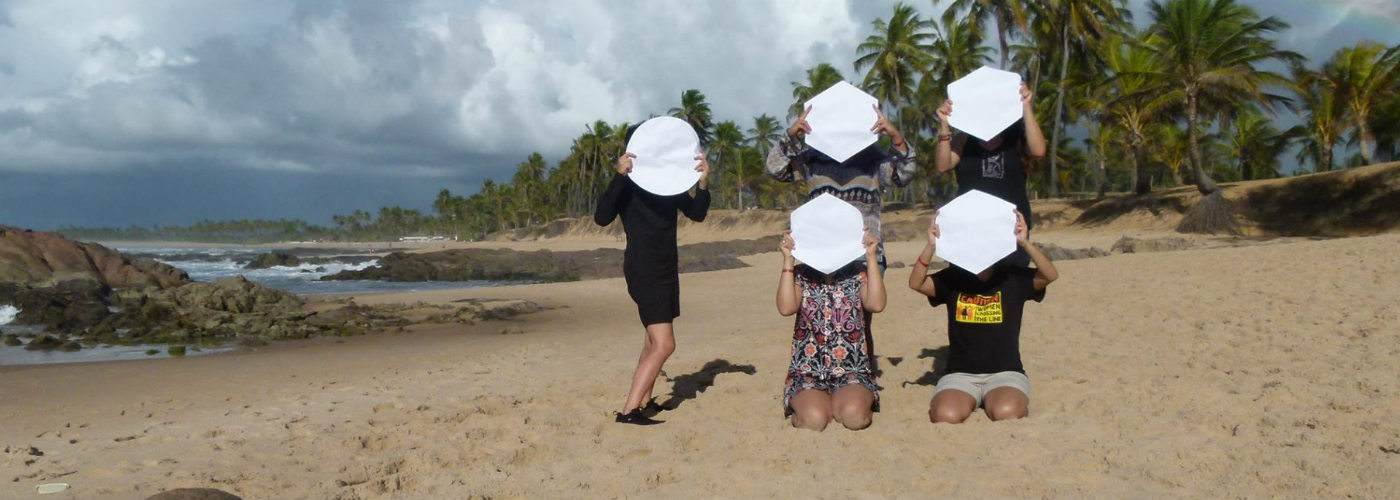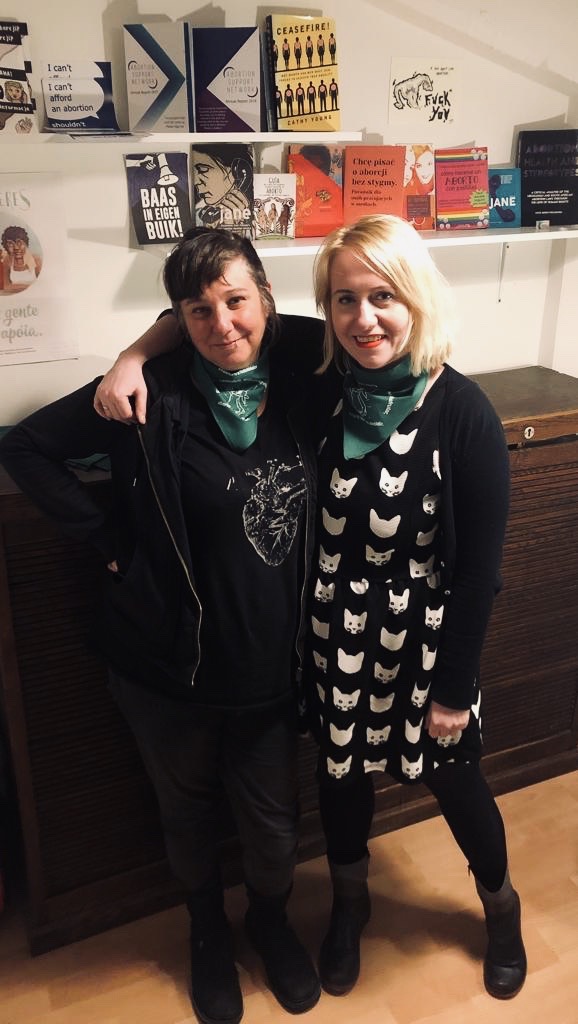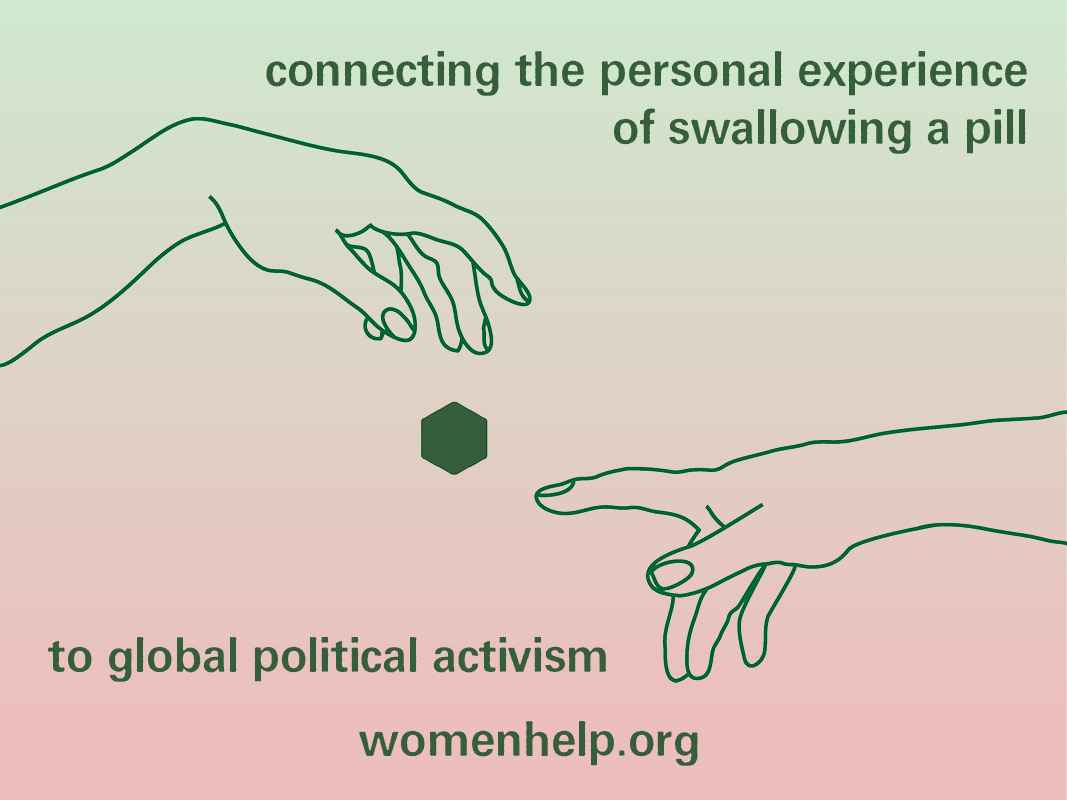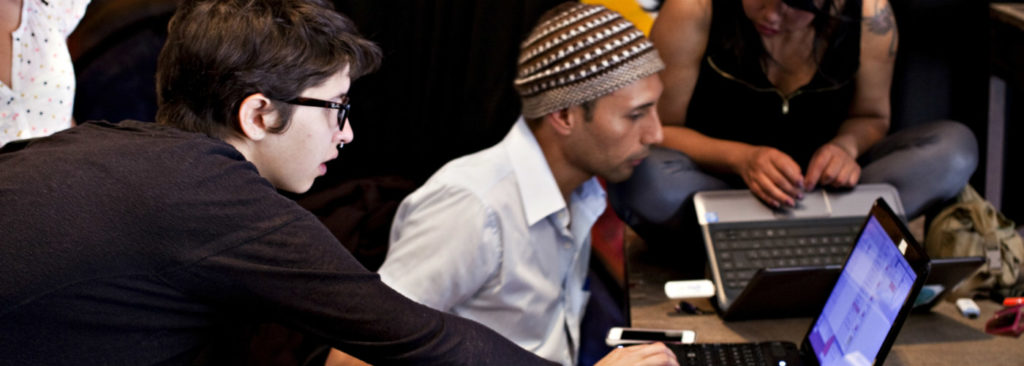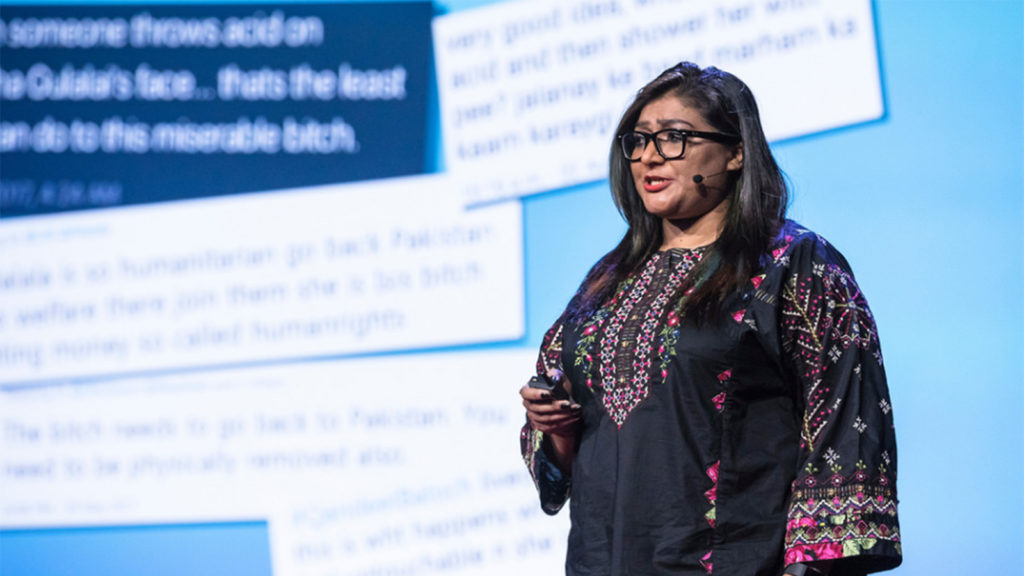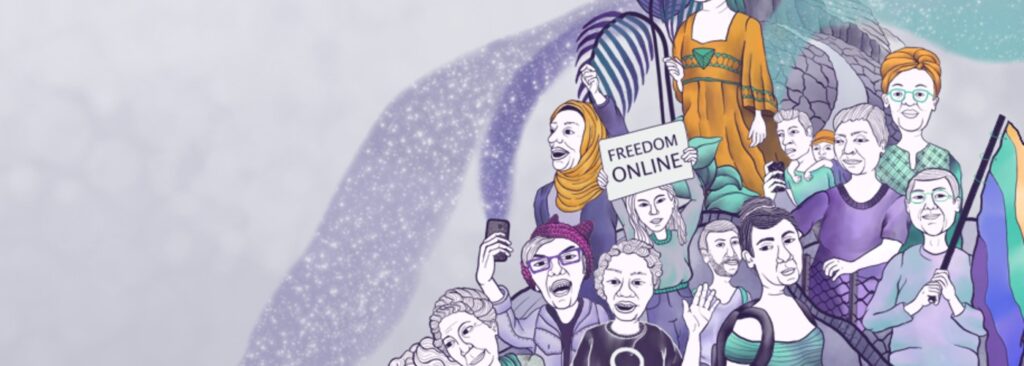How digital technology empowers women
Kinga and Susan are two very down-to-earth people working on one of the most controversial issues imaginable. They’re part of the feminist non-profit Women Help Women, which runs an online platform facilitating direct access to safe abortion. Their work relies on freedom of information, a principle Hivos helps them to promote and protect. We sat down with Kinga and Susan to find out why abortion is so much more than just a health care issue.
“Our online service,” Kinga explains, “allows people to take their health and their lives into their own hands. We facilitate what is known as ‘self-managed’ abortion. People can go to our website, request abortion pills and have a safe abortion at home.” Abortion has been made highly controversial by those who oppose it, but it need not be. Nor should the pills be, according to Kinga. “They are very safe, efficient, and backed by elaborate research and recommendations by the WHO.”
We want to give safe abortion back to women. Back to where it belongs.
Women Help Women asks for a donation of 75 euros to support the service. Those who cannot afford this can donate less, or receive the service without making a donation. Kinga and Susan are quick to add that it’s not just the access to safe medical abortion that makes their work key to women’s health, sexuality and empowerment. It’s the information they provide that plays an equally vital role.
Uncensored information
“We receive some 12,000 emails a month. People from around the world ask us questions like: How can I abort safely?” Kinga says that answering these emails is at the core of her work. “We believe in freedom of information without it being censored because of politics,” she explains.
Both Kinga and Susan see, however, how politics does play a defining role in the extent to which abortion is restricted. “Look at the Trump administration, the Bolsonaro administration, and what is happening in Poland and Hungary. We see right-wing populists opposing reproductive justice because they think this threatens the classical model of the family and lets women participate in society much more independently.”
There’s no such thing as a good abortion law.
Unfortunately, it’s not just politics that impedes access to free and independent information. The existence of abortion laws – likewise a result of politics – plays a decisive part as well.

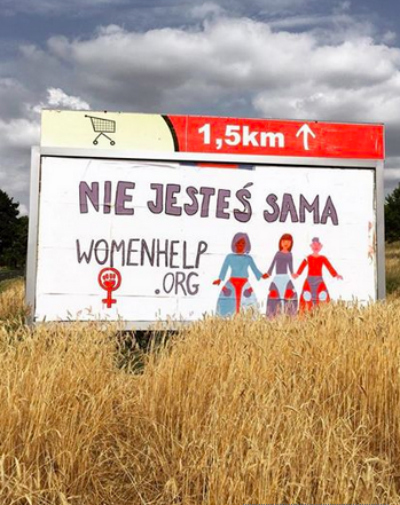
Fighting archaic laws
Abortion laws determine to what extent abortion is allowed. In most countries, for example, it’s illegal to perform your own abortion outside the official health care system. “All of these laws should be removed,” Kinga and Susan say. “There’s no such thing as a good abortion law. All laws are per definition anti-abortion because they are about controlling when and how abortions can happen.”
Susan sees how legal frameworks affect accessibility of official abortion care in many countries. “There’s bureaucracy, stigma and fear, also among medical personnel. People are afraid to cross lines in the sand.”
What’s worse is that the laws are archaic. “When we talk about the pills, we’re talking about the biggest innovation in abortion care to date. Still, it seems as if they’re a big secret,” Kinga says. Most laws date from decades ago and were passed when the pills Women Help Women offers didn’t even exist.
“Technology has changed. Now you can take a pill and have a safe early abortion. How are you going to police that? It’s absurd to have laws from the 1970s dictating women’s reproductive freedom,” Kinga adds.
Empowering people with information
Through her work she sees that legal restrictions don’t decrease the number of abortions. They mainly just decrease the safety of abortions. That brings us to another important part of her work. Or, as Kinga puts it, “We want to get into those unofficial channels and empower people with information. By releasing medical information to the public, we want to create peer-to-peer support. We want people to know how to perform abortions safely, which complications might occur, and how to handle potential legal problems.”
Most of us don’t realize this, but people are dying.
In fact, it comes down to this. “We want to give safe abortion back to anyone who needs it. Back to where it belongs,” they passionately state. “Our work is not just about public health. It’s about the universal rights to information and self-determination.”
Kinga, born and raised in Poland, shares what misinformation – or the stigmatization of information – means in practice. “I was taught abortion was illegal and a terrible, terrible thing to do. It was only in my teenage years that I started making the connections myself. I started linking abortion to the church, to sexuality and other social issues. Only then, I realized abortion was about politics and about control.”
A sobering fact
She relates a powerful anecdote from her work in Africa to explain what motivates her. “Most of us don’t realize this, but people are dying because of unsafe abortions. Whenever we train a group of community activists in Africa, we ask participants if they know anyone who died from unsafe abortion. Almost everybody raises their hands. These stories are overwhelming.”
Susan adds, “See how dangerous misinformation can be! I was always a pro-choice activist. But the availability of the pills made me realize how completely preventable all these deaths are. How it’s the lack of political will that causes these deaths.”
Capitalizing on technology
When politics are volatile and conservative populism is on the rise, the following question arises: How do you get trustworthy and independent information to the people who actually need it? Women Help Women’s answer is rooted in using digital technology and takes advantage of geographical locations.
For one, the organization is run from the ‘global north,’ which, legally speaking, is the safest way. Its servers are located in countries where laws prevent them from being subpoenaed. “Just imagine starting a foundation like this inside of Brazil,” Kinga says.
Hivos has been instrumental in building our team’s capacity in digital security.
Furthermore, the team, consisting of some 35 people working in 17 countries, relies on technology to do its work and connect with local activists. Technology helps the team adjust its strategies to region-appropriate contexts. “There’s not one size fits all. It’s about capitalizing on technology and technological innovations,” Kinga says. Besides the website, Women Help Women’s partners make use of telephone hotlines in countries where internet access isn’t secure. And when that doesn’t work, they work with grassroots organizations. In 15 sub-Saharan countries, Women Help Women co-coordinates a network of 30 organizations that help people spread information.
Defending the team digitally
Whatever form is used, digital security is paramount to the organization’s work. That’s why, in 2016, Hivos’ Digital Defenders Partnership started working with Women Help Women. “Hivos has been instrumental in building our team’s capacity in digital security,” Kinga explains. She wants her team to mitigate the risks it takes. And, unfortunately, risks are part of the work.
“We were concerned about the safety of activists, particularly in Latin America. We realized the importance of communicating safely.” From online trolling and governments trying to seize data and IP-addresses, to actual arrests. It all happens. “We see there’s lots of fear. People feel that if they do something wrong digitally, they’ll be put in jail. Hivos has helped us rationalize that fear and take appropriate measures.”
The first digital security training made staff aware of what they carry with them when traveling. “We learned that your laptops and phones contain all your sensitive information. Now, we use a travel laptop that’s almost completely empty,” explains Kinga. Other examples include using encrypted messaging and safer texting-apps and being aware of what happens on social media. “We can use Facebook for outreach, but not for counseling so as to not leave a digital track. All these seemingly small things are changing our behavior. Hivos allowed us to get together for the first time and invest in our own team,” she concludes.
Besides working on digital security, Hivos and Women Help Women share the conviction that access to open, safe and uncensored information is a right and an important tool in addressing social injustice.
A culture of injustice
Our lively conversation takes yet another thought-provoking turn. This happens when we discuss how religious convictions, the political climate and restrictive laws amount to a culture of injustice.
For Susan abortion is about feminism, which according to her, “is about being critical of structures of power.” She adds, “Talking about abortion, and the ability to control your life and reproduction, is a determining factor in your ability to participate equally in society. This has always been an issue of controlling the bodies of people with uteruses.”
Susan stresses the need to not only look at social hierarchy between men and women, but also at economic injustice. “Who is really affected by the abortion issue? Women with money can always get abortions. It’s the people with fewer resources who are affected most.”
Preparing for the future
Using their work on abortion to address all these other forms of injustice is not a minor task. So, when Kinga and Susan think about their future, they modestly express very ambitious goals.
“Of course, we will stick to abortion self-service, but I want to build connections beyond the ones with usual allies,” Kinga states. This means that besides working with women’s health and maternal health activists, “We want to join forces with activists working on freedom of information, anti-censorship, and anti-authoritarianism.”
Susan and Kinga conclude that their work is not just about women’s health; it’s about human rights.
More information?
If you have any questions about self-managed abortions, you can visit the resources section on the Women Help Women website. Additionally, Kinga co-authored this article that sheds light on the history and importance of the abortion pill.
Hivos believes an open internet, free from threats to expression, assembly, privacy and other fundamental rights, is of crucial importance. Internet has become an indispensable tool for citizens to express their views and fight for their rights. But online privacy and freedom are becoming part of the civic space that we see shrinking worldwide.
That’s why the Hivos Digital Defenders Partnership (DDP) is on a mission to provide an integrated response to digital threats. Recently, we launched the Digital First Aid Toolkit: a website that guides you in diagnosing digital emergencies you are facing and refers you to support providers for further help if needed.

